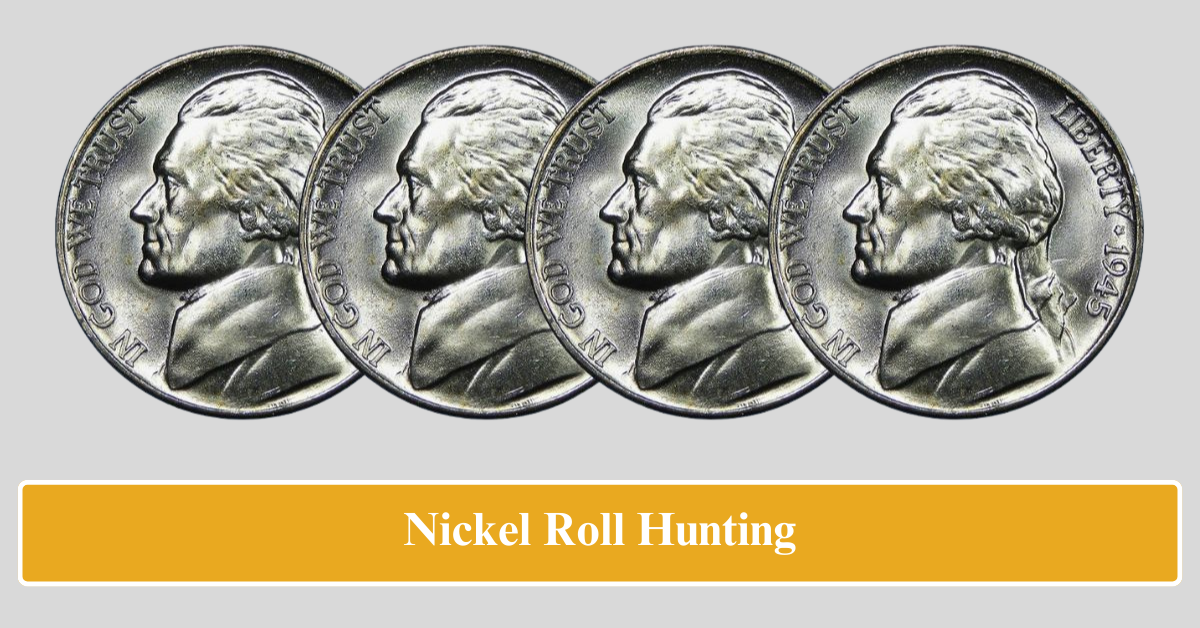Coin roll hunting offers a thrilling way to discover rare and valuable nickels while diving into numismatic history. Whether you’re a beginner or a seasoned coin collector, knowing what to search for in nickel rolls can significantly enhance your chances of uncovering hidden gems. Let’s explore how to make the most of your nickel-hunting experience.
Types of Nickels to Look For
1. Jefferson Nickels (1938–Present)
- The most common nickel series.
- Focus on key dates, rare mint marks, and condition.
2. Buffalo Nickels (1913–1938)
- Older nickels with iconic designs.
- Dates and condition greatly impact value.
3. V-Nickels (1883–1912)
- Rarely found in circulation but highly collectible.
- Recognizable by their vintage design and historical significance.
Key Dates and Varieties
Key Jefferson Nickels
| Type/Year | Details |
|---|---|
| 1939-D and 1939-S | Rare early Jefferson nickels. |
| 1950-D | Low mintage, highly sought after. |
| 1942–1945 Silver | Wartime nickels made with 35% silver. |
Additional Valuable Coins
- 1943-P and 1944-P Silver Nickels: Part of the wartime series, valued above face value.
- 2009 Jefferson Nickel: Low mintage makes this coin relatively scarce in circulation.
Understanding Mint Marks and Condition
Mint Marks
Nickels feature mint marks that identify their production location:
- P: Philadelphia
- D: Denver
- S: San Francisco
Condition
The state of a coin significantly influences its value. Use a magnifying glass to assess:
- Wear and Tear: Coins with minimal wear fetch higher prices.
- Scratches or Flaws: Avoid heavily damaged coins unless they’re rare.
- Details: Look for sharp features, such as the steps on Monticello or clear lettering.
Errors and Varieties to Watch For
Mint errors and unusual varieties can add significant value to nickels.
| Error Type | Description | Value Potential |
|---|---|---|
| Off-Center Strike | Coins with incomplete designs. | $20–$200+ |
| Doubled Die Varieties | Doubled letters or numbers due to die misalignment. | $50–$500 |
| Die Cracks | Visible cracks on the coin’s surface. | Varies by size |
Silver Nickels (1942–1945)
During World War II, nickels were minted with a unique composition of 56% copper, 35% silver, and 9% manganese to conserve nickel for the war effort.
Key Identifiers
- Shiny Appearance: Silver nickels have a distinct luster.
- Large Mintmark: Positioned above Monticello on the reverse side.
Value
Silver nickels are worth more than face value, typically $1–$3 each, depending on silver prices and condition.
Specialty Rolls to Search
Older Rolls
- Rolls containing pre-1960 nickels may yield Buffalo nickels or early Jefferson nickels.
Regional Rolls
- Rolls from specific mints or regions may have unique coins not commonly found elsewhere.
Tips for Successful Nickel Roll Hunting
- Equip Yourself
- Use a magnifying glass to inspect fine details and a coin reference guide for quick identification.
- Be Patient
- Finding rare coins requires persistence and time.
- Log Your Finds
- Maintain a record of rare dates, errors, or unusual pieces for future reference.
Hunting through rolls of nickels can be an exciting and rewarding hobby. With a keen eye for key dates, mint marks, errors, and silver wartime coins, you can uncover valuable treasures in your pocket change. Patience, knowledge, and the right tools are your keys to success in this fascinating numismatic pursuit.
FAQs
Some important dates include 1939-D, 1939-S, 1950-D, and silver nickels from 1942–1945.
Silver nickels have a large mint mark above Monticello and a distinct shiny appearance.
Look for off-center strikes, doubled die varieties, and die cracks.
Buffalo nickels are rarely found but can occasionally appear in older nickel rolls.
Off-center nickels can be worth $20 to $200+, depending on the degree of mistrike.

